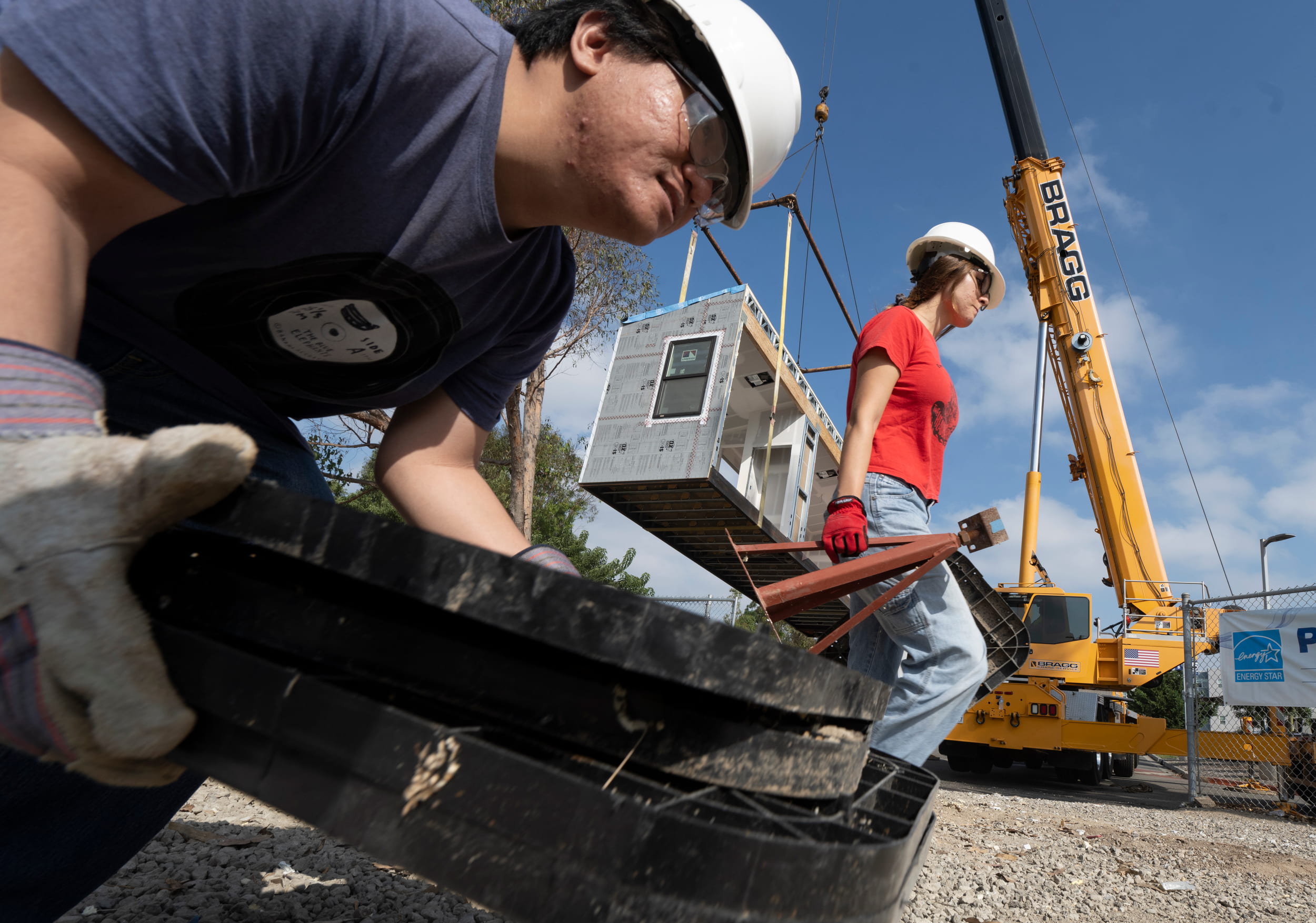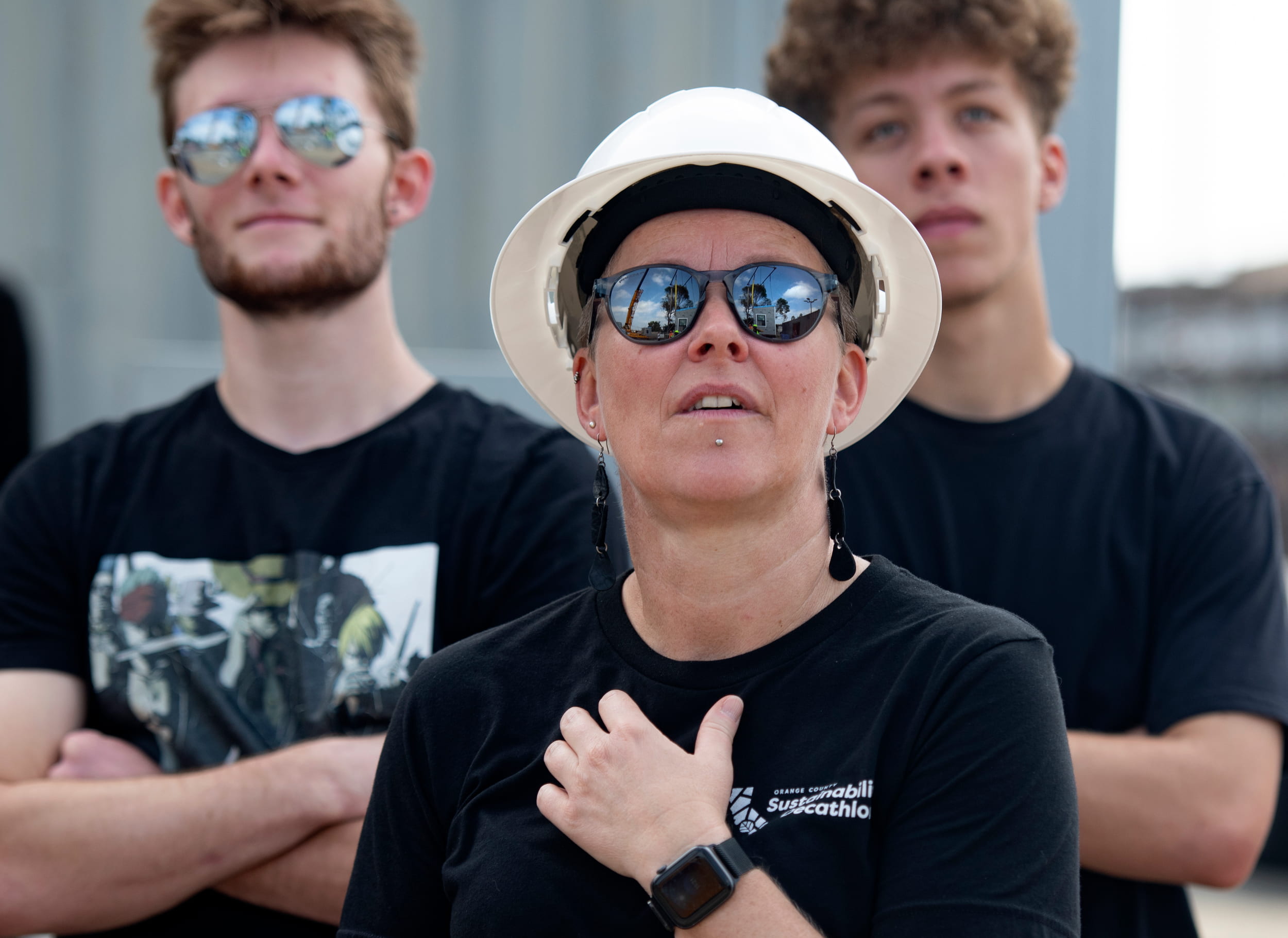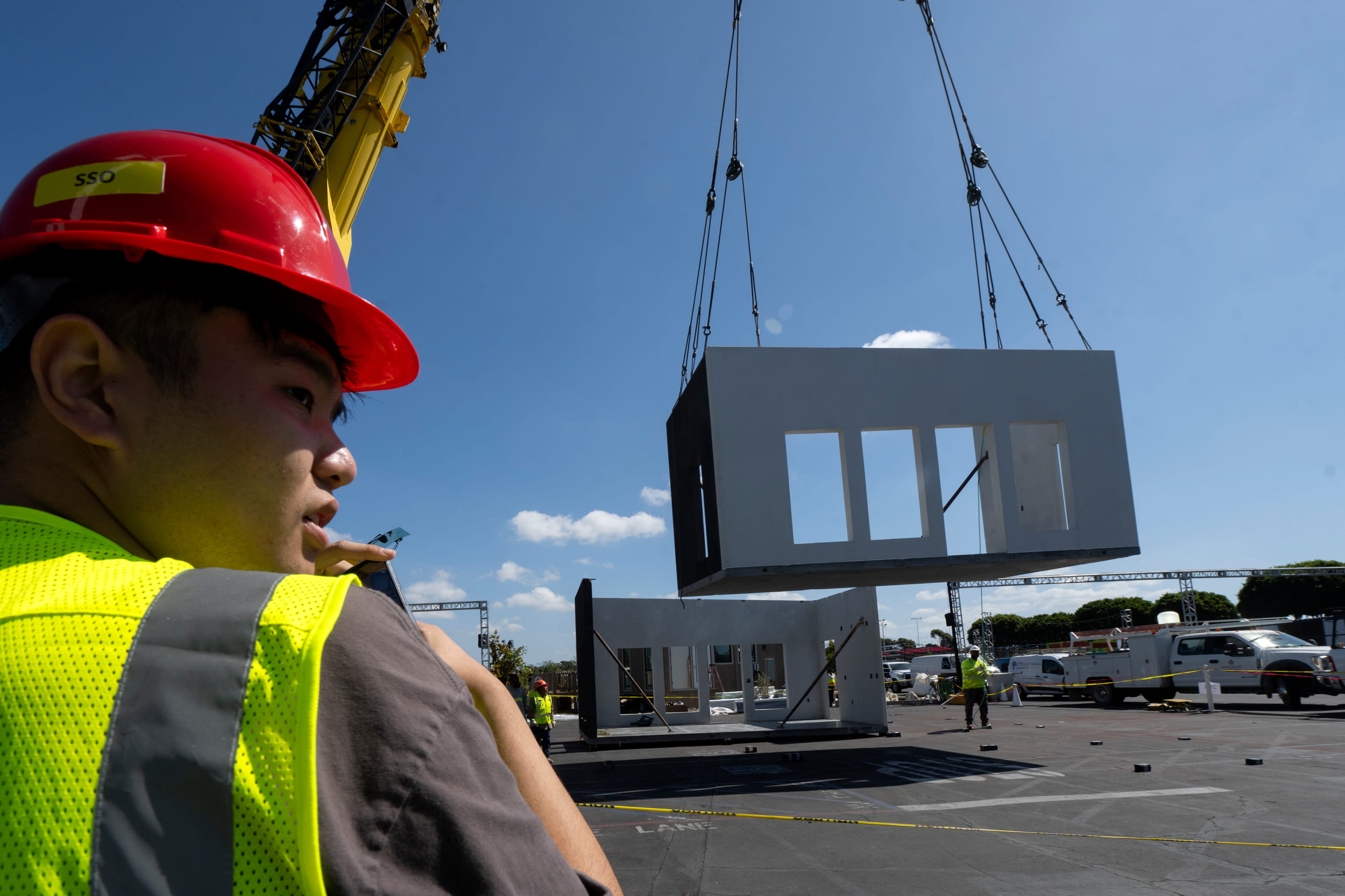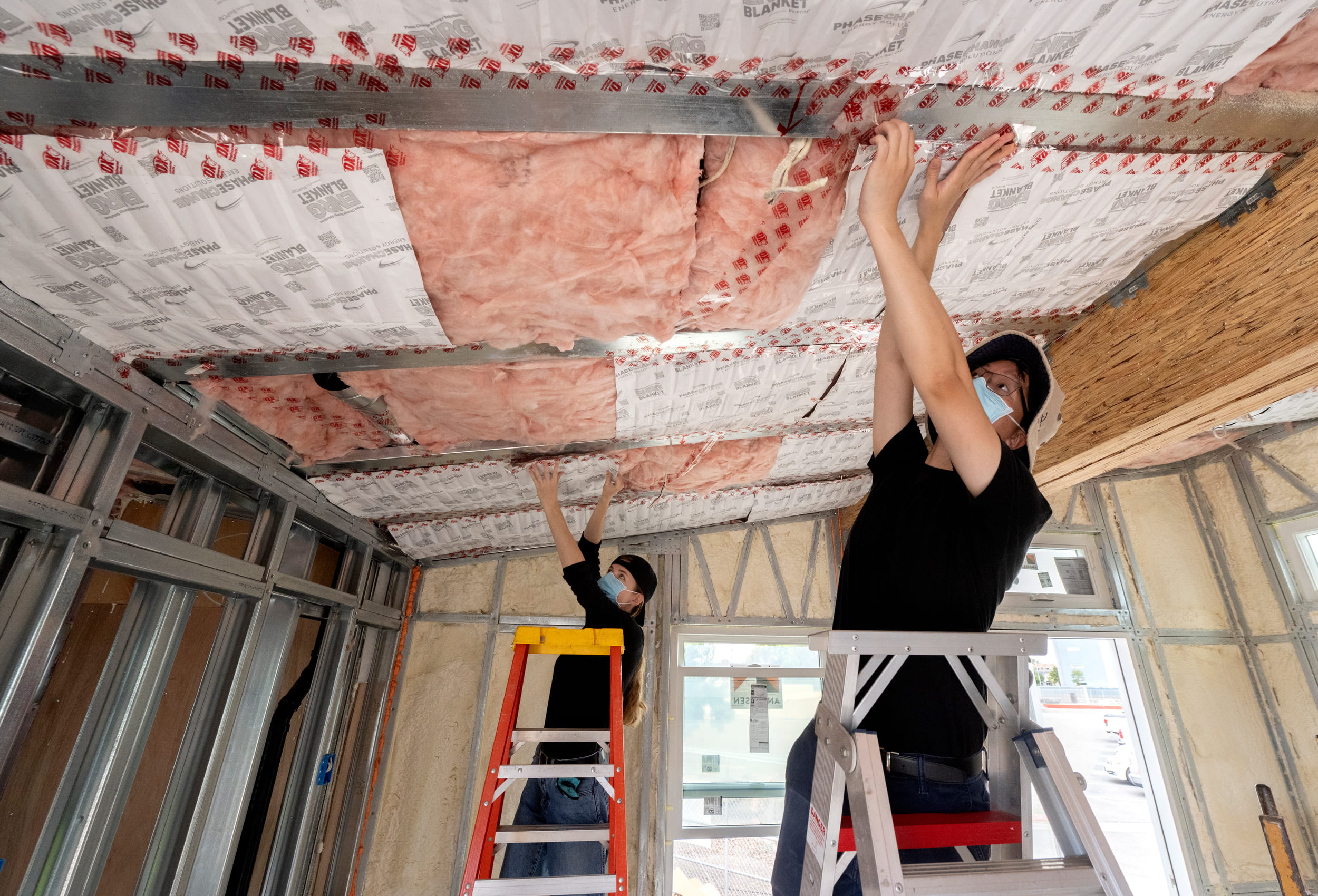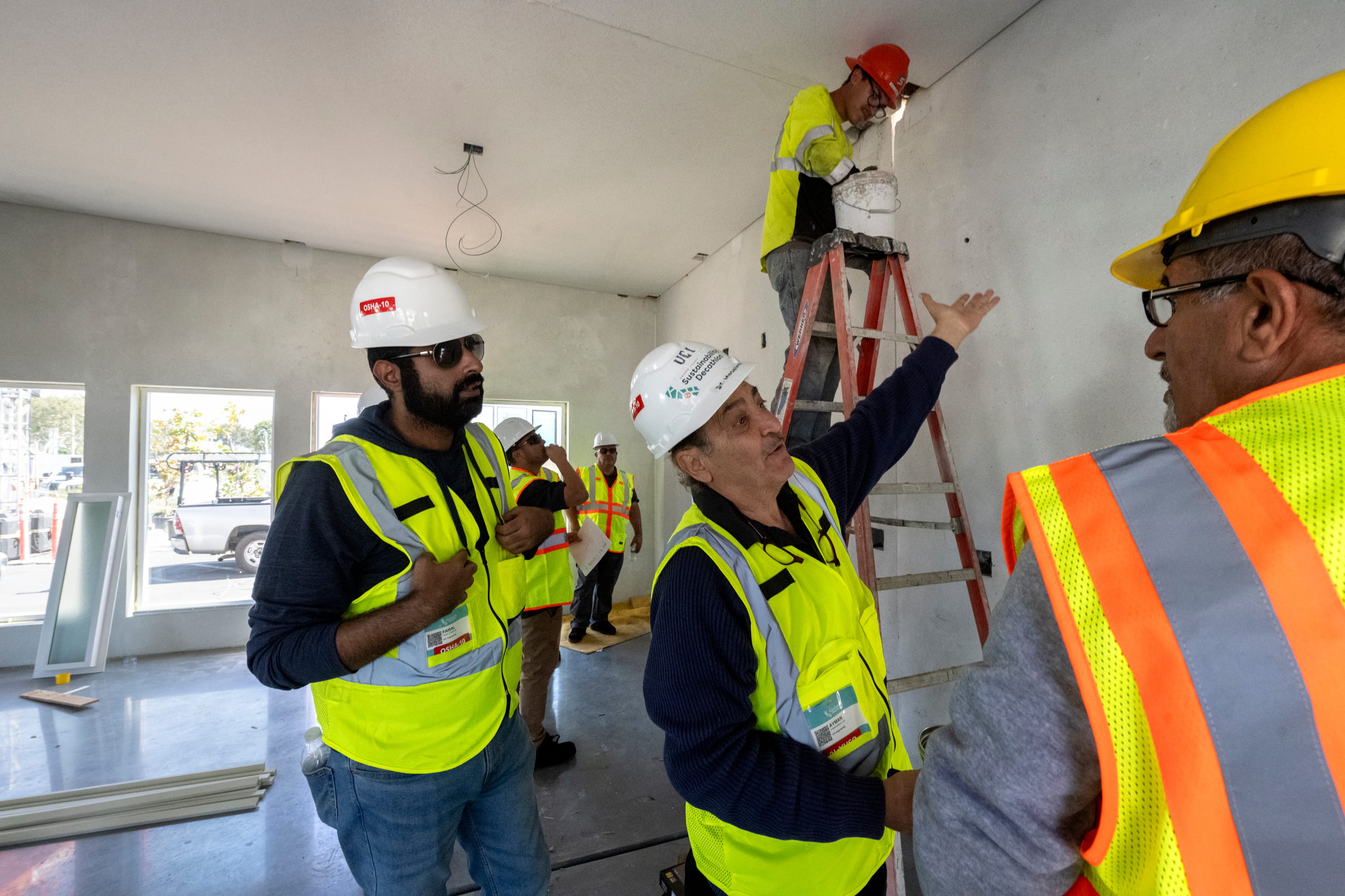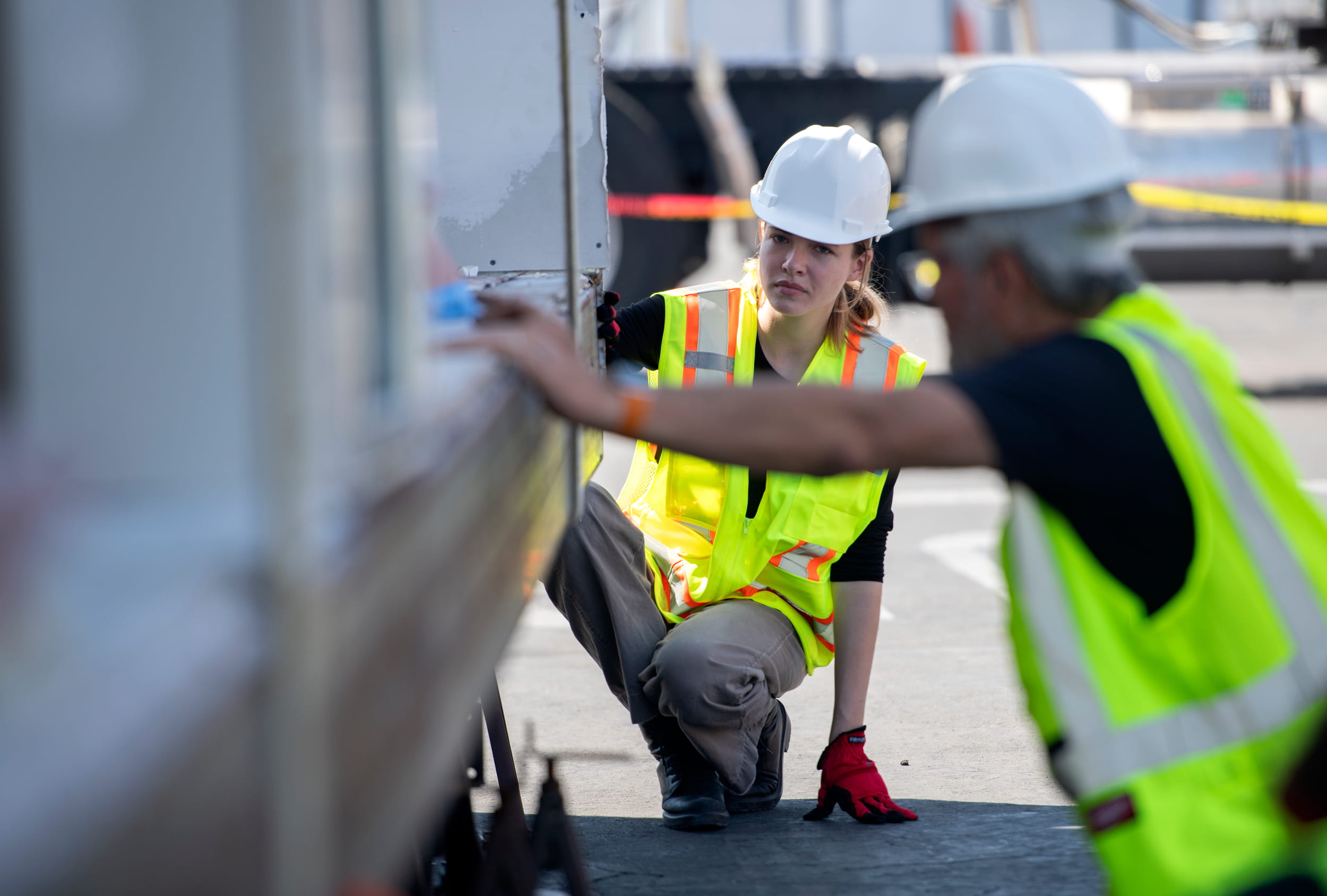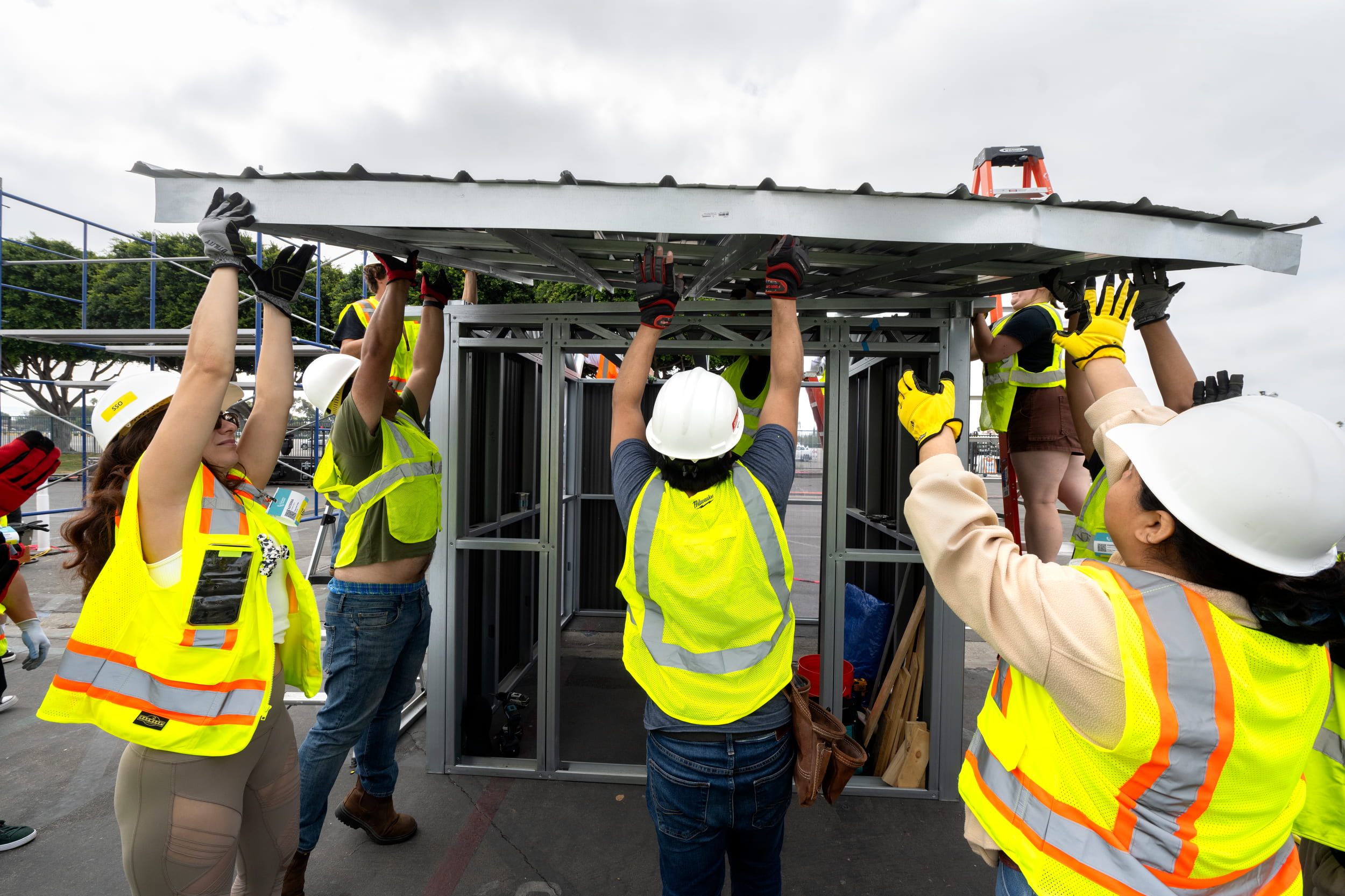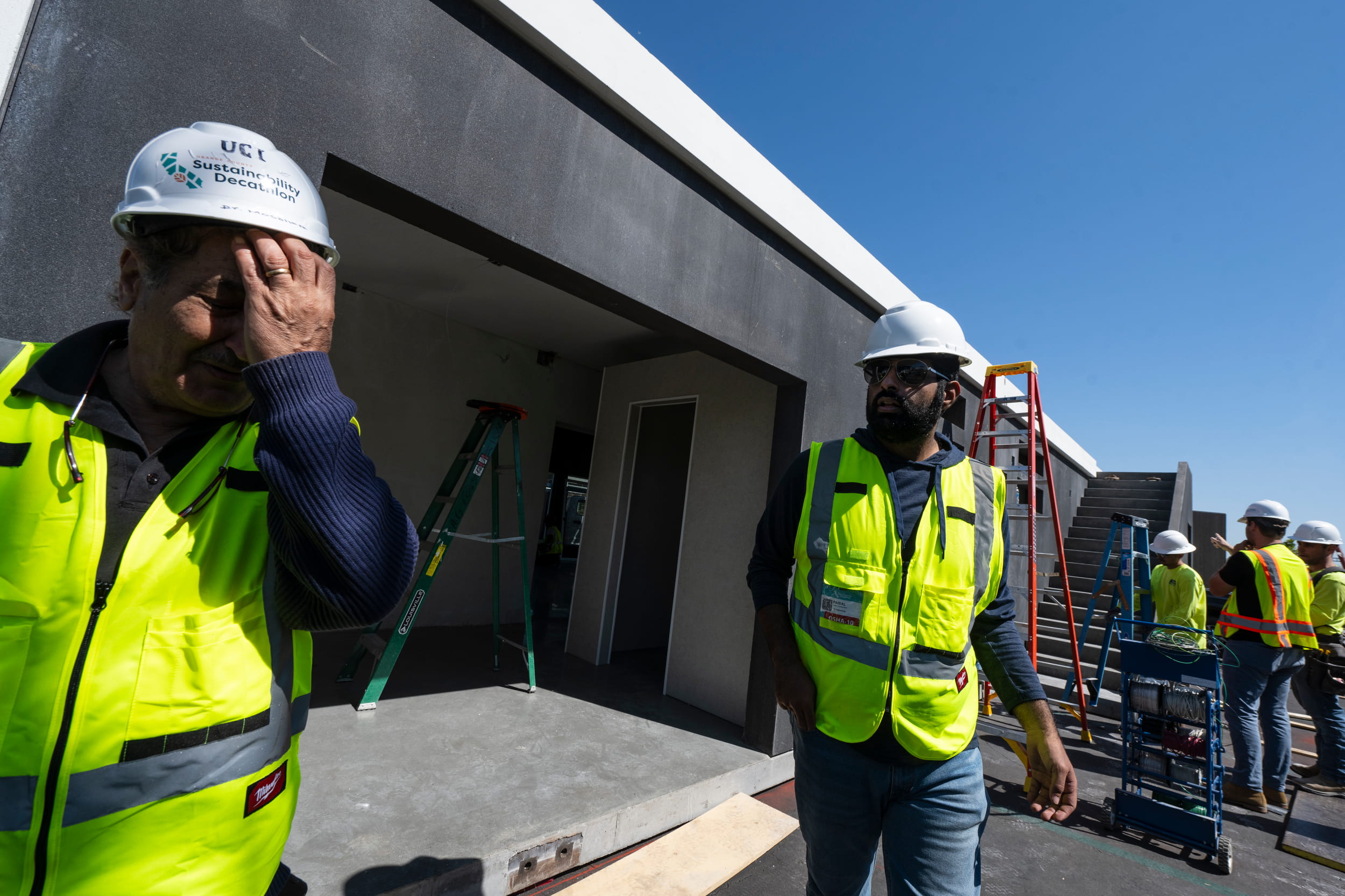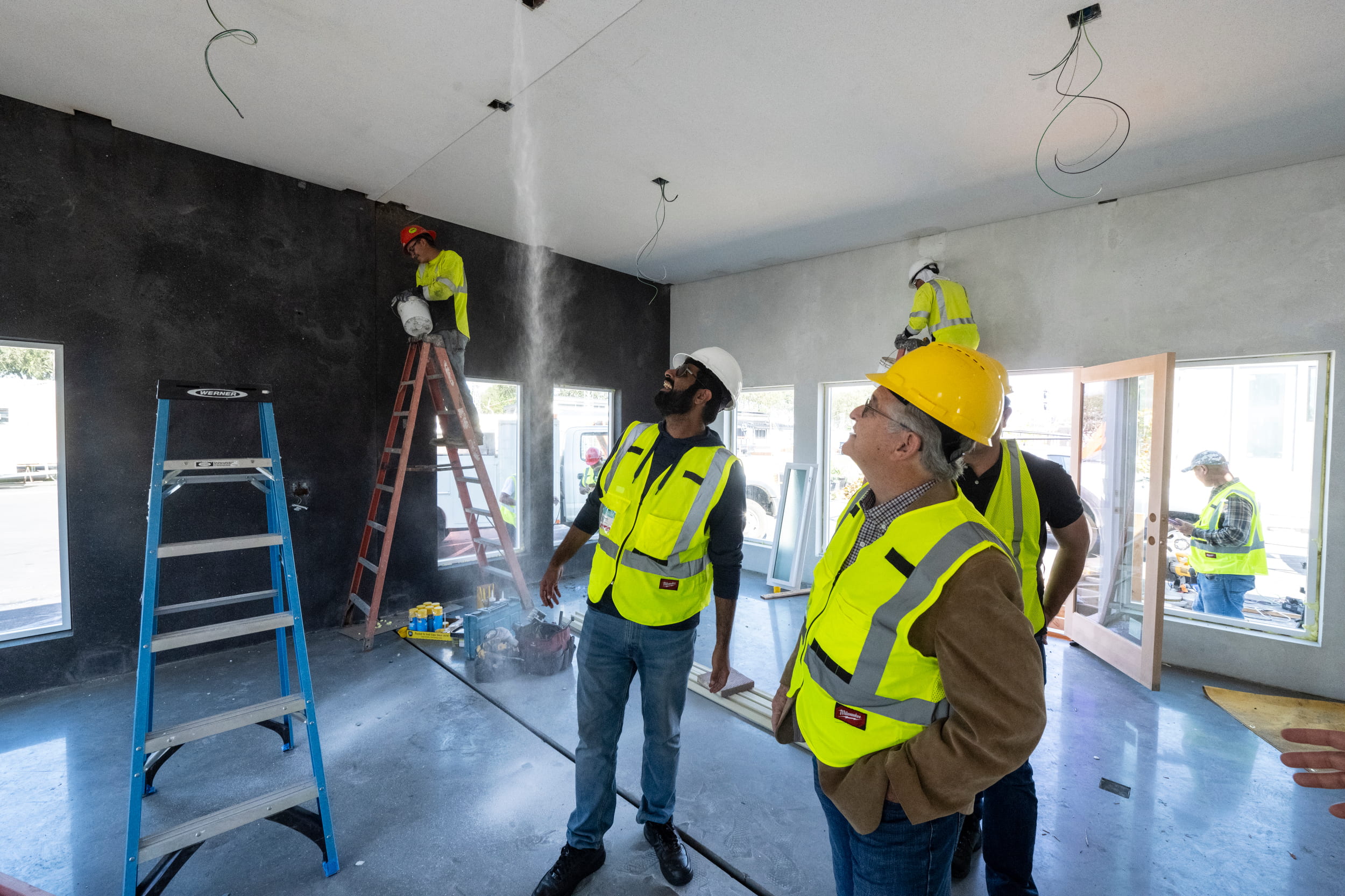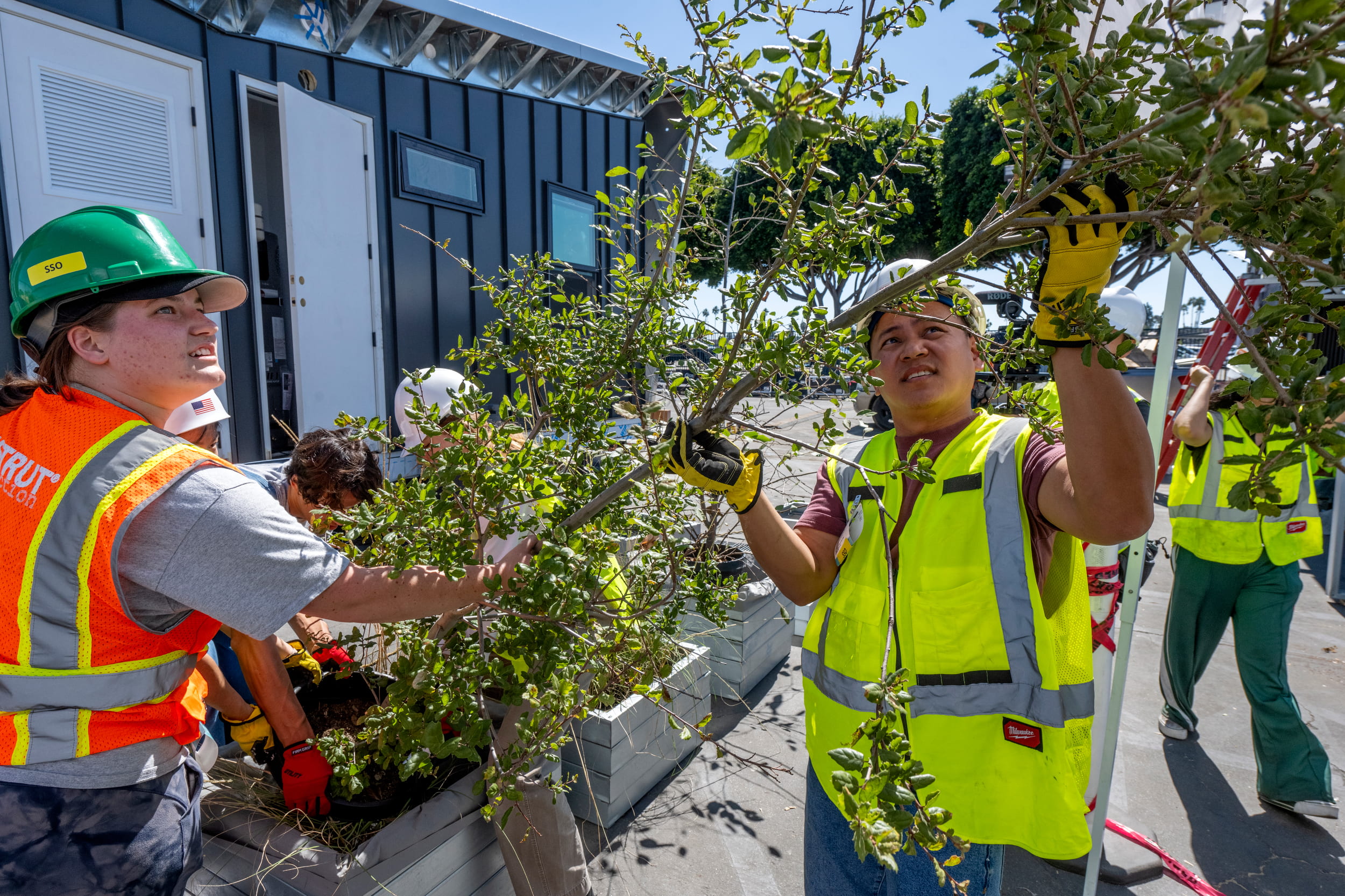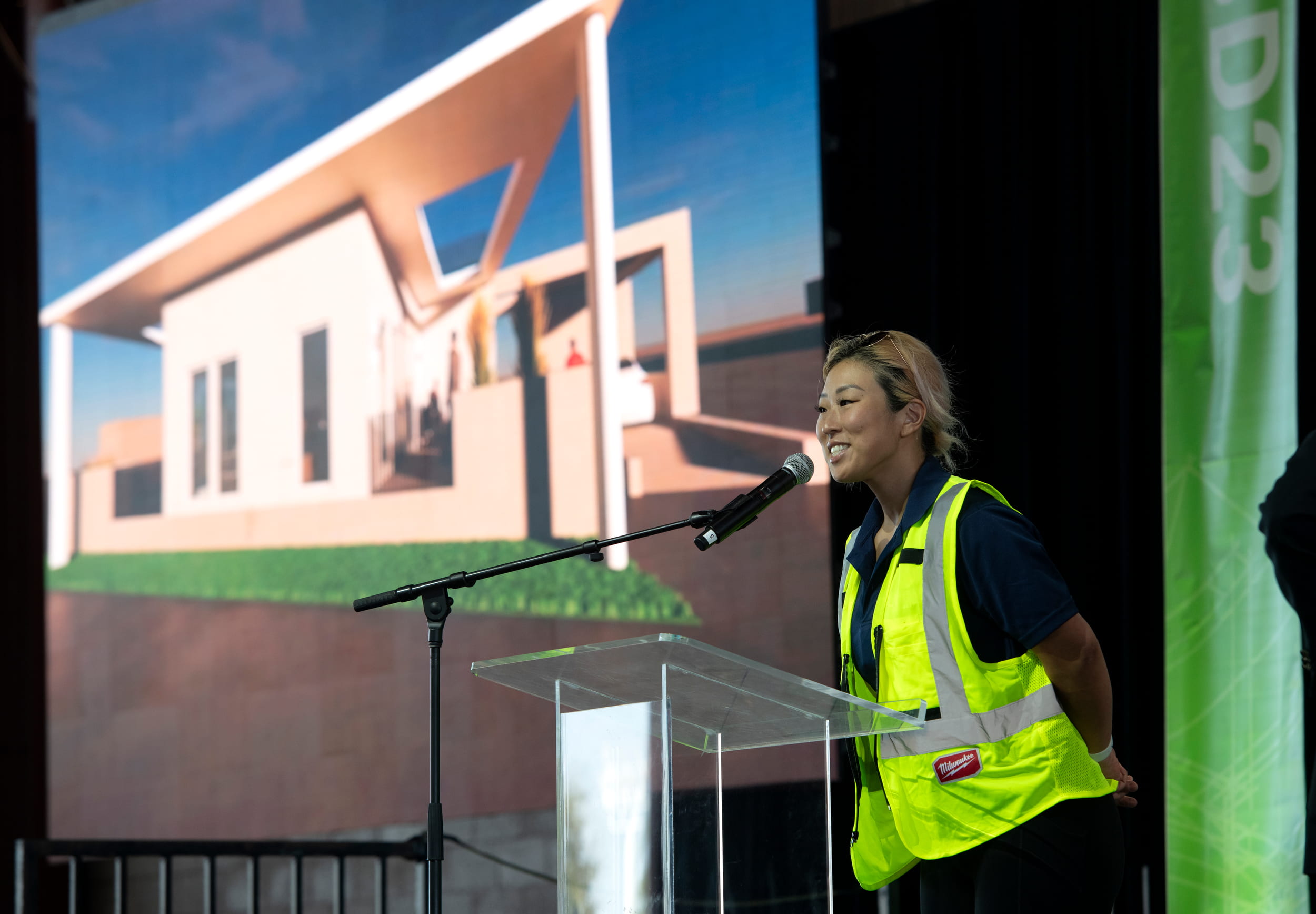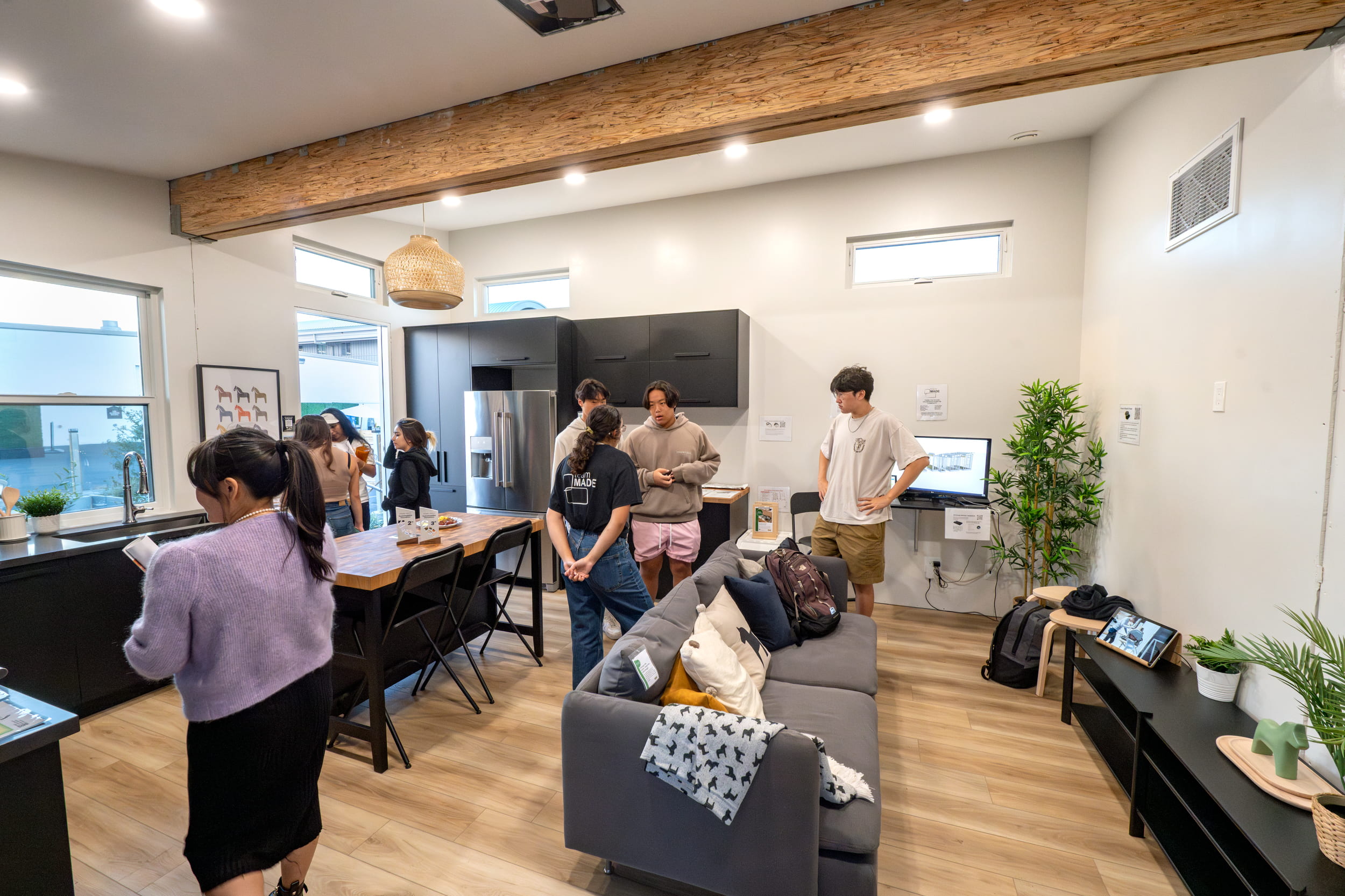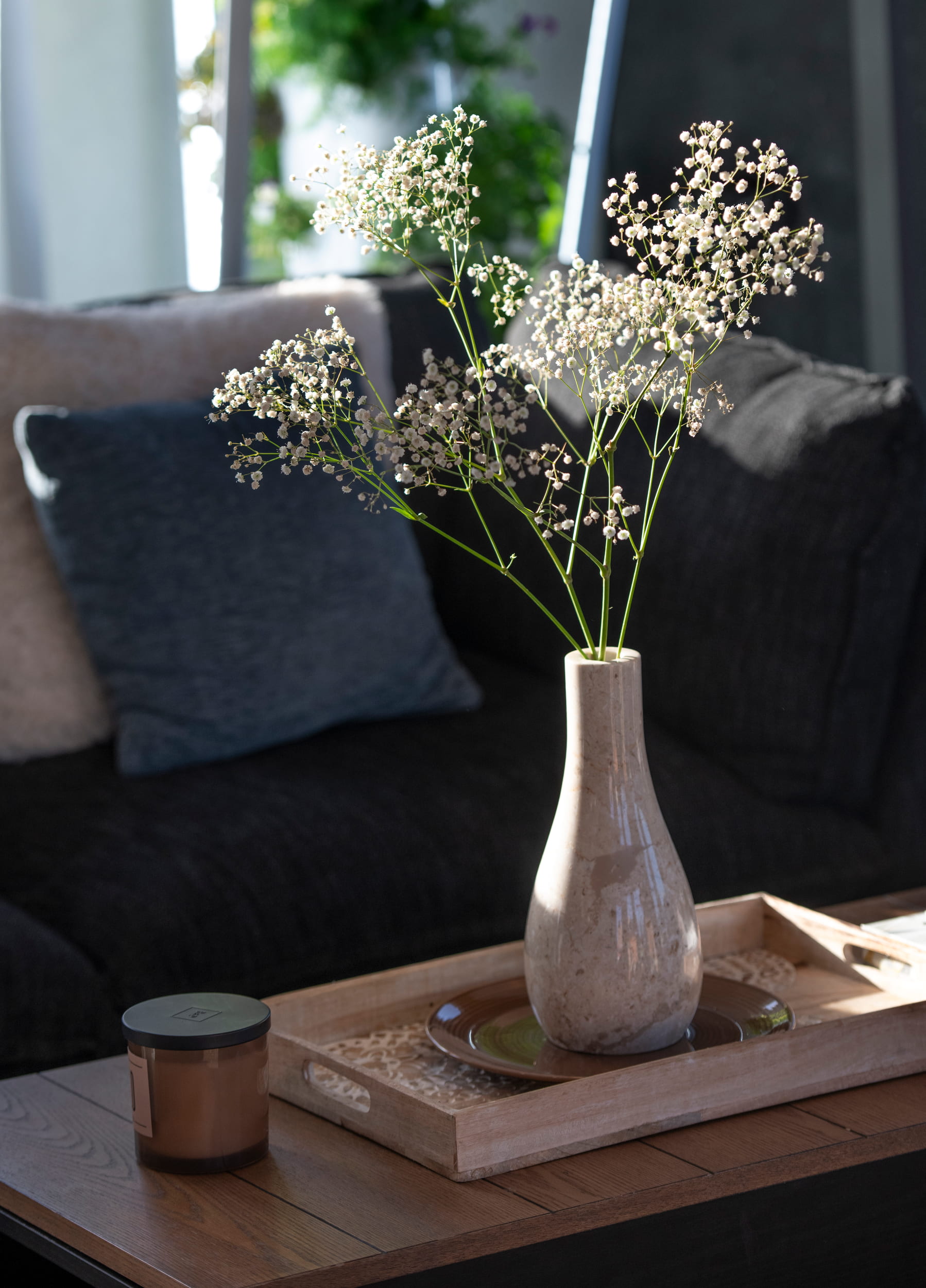Building homes for a sustainable world
UC Irvine student engineer teams earn praise for innovation at the Sustainability Decathlon
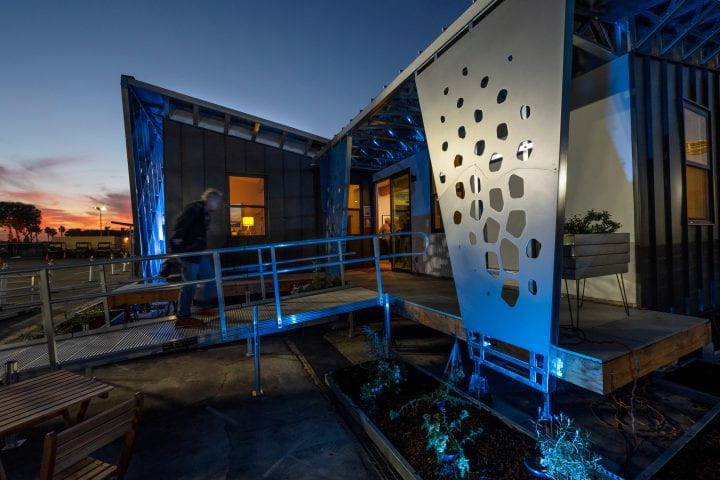
An image of rebirth inspired students from UC Irvine and Orange Coast College to design and build a home named LuminOCity to enter into the Orange County Sustainability Decathlon last month. The house received second place overall, among many other awards, including first place in market potential and engineering and construction.
The roof of their home reaches up like the wings of a butterfly. “We studied metamorphosis and wanted the house to mold into the residents’ story and provide them the encouragement to leave more uplifted and secure,” says OCC student Georgie Ampudia, the project’s student lead. The butterfly roof also enables residents to enjoy high ceilings, more solar panels and rainwater collection for recycling.
The UC Irvine-OCC team, TeamMADE, plans to donate the home to Homeless Intervention Services of Orange County, which has been helping homeless families and at-risk youth to rebuild their lives. Since August 2020, with just nine beds for their youth program, they’ve helped 165 persons, aged 18 to 24, to lead normal lives after being traumatized by homelessness, sex trafficking, abandonment, addiction and other challenges.
“This program has helped me get me off the streets of Riverside. I got my ID and EBT [electronic benefits transfer] card. I’m going to get a job,” says 19-year-old Kaia Barker. “It’s really helping me get my stuff together instead of staying on the streets and thinking drugs are the answer when they’re really not.”
“The program does work,” says HIS-OC Case Manager Anthony Trejo. “The residents learn that structure is very important. They also know they have someone behind them who wants to see them succeed.” The formerly homeless youth reside for an average of four months and are required to get a job, save money, and learn life skills like paying bills, doing housework and building credit. They also attend classes on anger management and recovery.
The donation of LuminOCity would enable HIS-OC to add four to eight beds to help more youth get off the streets. “Knowing that this is going to make an immediate impact after it’s done is the most meaningful part of this project,” says UCI engineering student Keeley Wandrocke, who worked on the home all summer. “The fact that four people are going to be able to live sustainably and comfortably inside a 750-square foot home is to a lot of people unthinkable, but it can be so easily done.”
LuminOCity is a two-bedroom accessory dwelling unit that fits in HIS-OC’s backyard. The jury praised its “flexible design” and “ease of assembly.” The base + bonus modules can be mixed and matched to fit into backyards or build a village.
TeamMADE was one of 14 teams competing in the O.C. Sustainability Decathlon. Many participants were California-based, but other teams included members from China and the United Kingdom.
One of those teams, Team LUCID, included graduate and undergraduate students in UCI’s Department of Civil and Environmental Engineering, who showcased an innovative home based on a concrete structure. Under the guidance of Ayman Mosallam, UCI professor of civil & environmental engineering, that project tied with other teams for first place in the energy efficiency performance rating category. The team also placed fourth in architecture and interior design, lights and appliances, communications and marketing, water use conservation, health and comfort and innovation.
Addressing OC’s housing issue
Orange County residents see housing issues as the county’s most serious problem. A 2023 poll by the UC Irvine School of Social Ecology revealed that 71% of residents cited homelessness and 69% said affordable housing are serious problems in the county. More than 85% support committing resources to address homelessness.
TeamMADE designed this ADU to be net-zero, but future designs could be entirely off-grid. Their units are exponentially cheaper than traditional homes and easy to assemble. Think LEGOS made of cold-formed steel.
“The secret behind this house is the steel FrameCAD system,” says Joseph Sarafian, OCC professor and the team’s lead architect. “What’s innovative is that assembly can be done by unskilled labor. It’s essentially an erector set for the construction industry.” People can design their own homes, print the parts onsite and build it with friends and family from an assembly diagram.
Over 80% of TeamMADE’s crew are women, most of whom had little to no experience in construction. “I was honestly scared to use power tools being someone that’s not very strong,” says Wandrocke, a UC Irvine mechanical engineering senior, “but it was easier than expected because my professor Mark Walter instructed me how to do things.”
Over 100 students volunteered to help build the home. “I love construction because I get to see someone’s vision come to life,” says OCC student Catherine Revtyak. “I learned how to stucco, to build decks. The thought that we were making something for such a good cause – it was so inspiring.”
Two UC Irvine teams participated in the decathlon, both designing modular homes with sustainable materials that could be erected quickly. The average time to build a home in California is about seven months. These homes can be built within a few weeks.
TeamMADE used the most recycled material in the world – steel – which is resistant to mold, insect infestation and is noncombustible. UCI students on TeamLUCID created a new lightweight concrete for their eco-friendly home.
In a sustainable materials course taught by Mosallam, students experimented with over 100 mixtures of materials and used an insulated core to create a resilient but lightweight concrete. Their walls have better thermal and sound insulation than normal ones. They also resist hurricanes and take over three hours to burn, which would save lives in the event of a wildfire.
LUCID is also modular and its walls prefabricated. “The home can be erected in three days, which is a miracle in itself,” said UCI engineering graduate student Jackie Yoo, LUCID’s project manager. “These walls are pre-built with the ability to connect all the modules, so a team can just erect the precast walls.”
“What I loved about these clever engineering solutions is these are not only affordable scalable buildings, but the design elements are also fantastic,” says UC Irvine Samueli School of Engineering Dean Magnus Egerstedt. “There’s real potential to take these concepts and commercialize them to help solve homelessness in a sustainable way at scale.”
The homes have energy-saving features that seamlessly fuse form and function. LuminOCity’s roof cascades down to a façade that shields the home from the harsh summer sun, thus helping to maintain comfortable indoor temperatures. Designed like a tortoise shell, the home’s perforated outer wall sheds sunlight indoors in an exquisite array to fill the home with light and make it a haven for the temporary dwellers who will eventually venture out in the world.
Upon seeing the home on opening night, Jacob, a HIS-OC graduate said, “I’m jealous now. This is just a lovely space where you can grow and plan how to change your challenges and situation. I feel like it’s a very beautiful place to be.”


